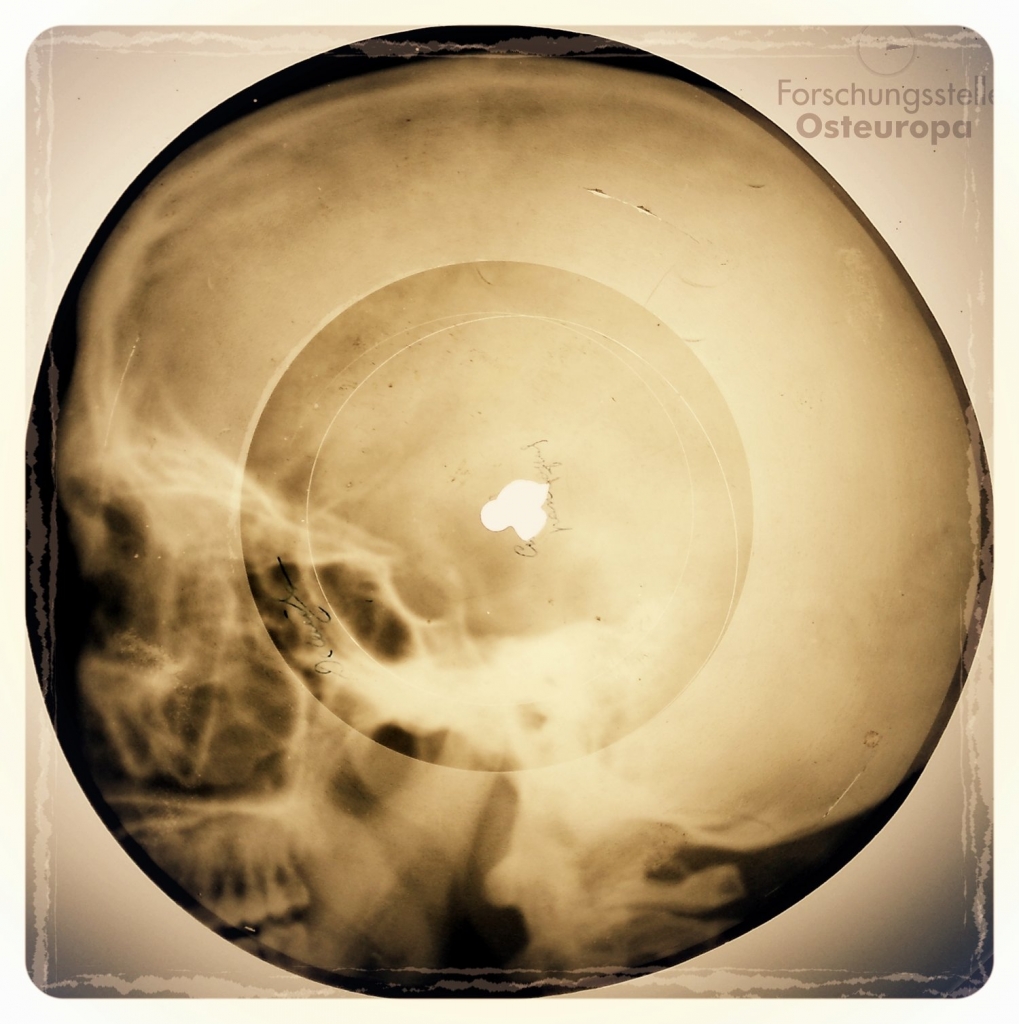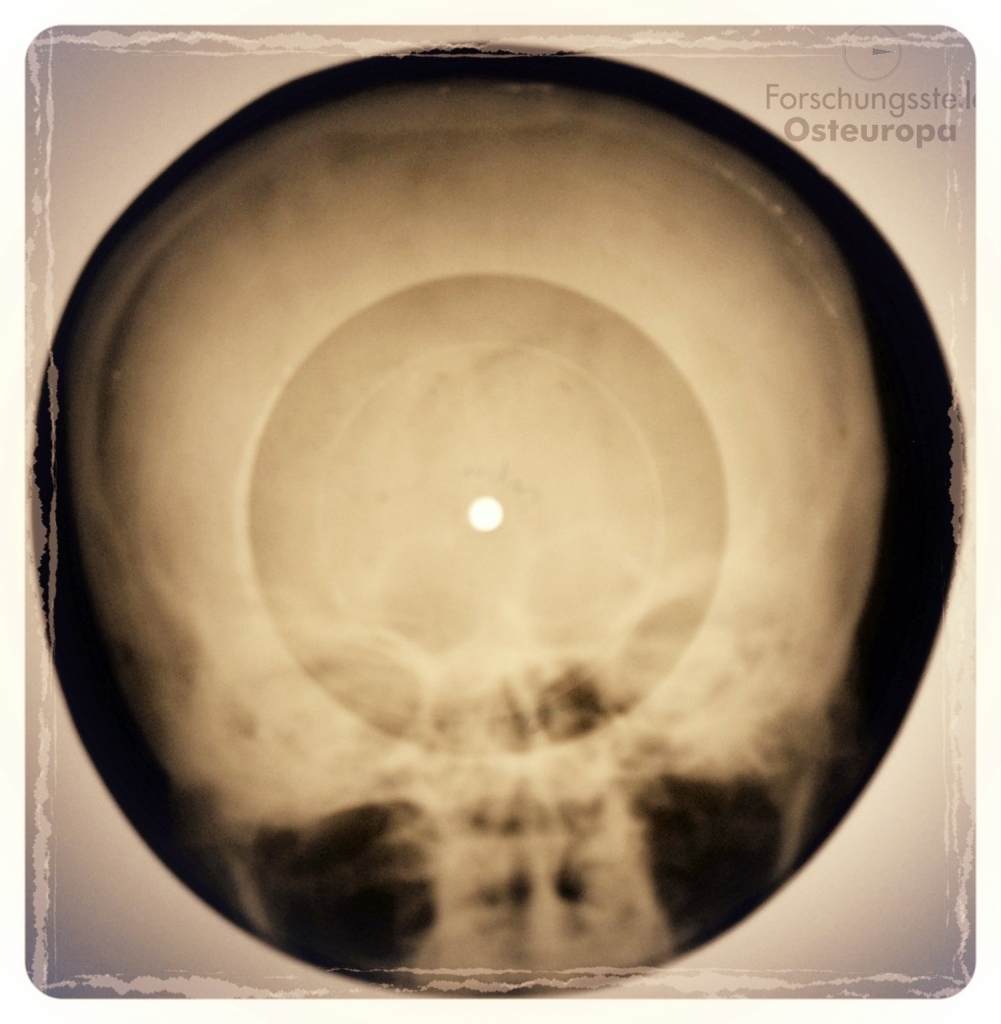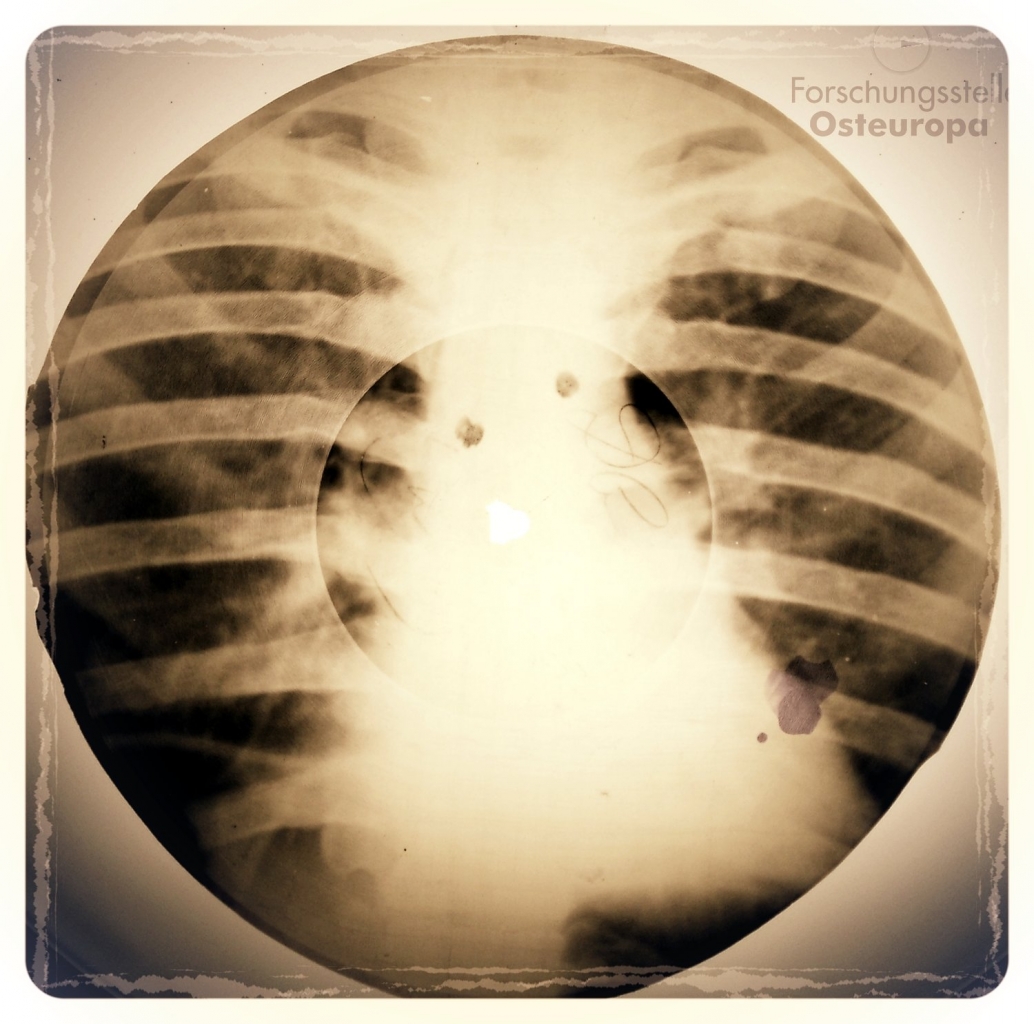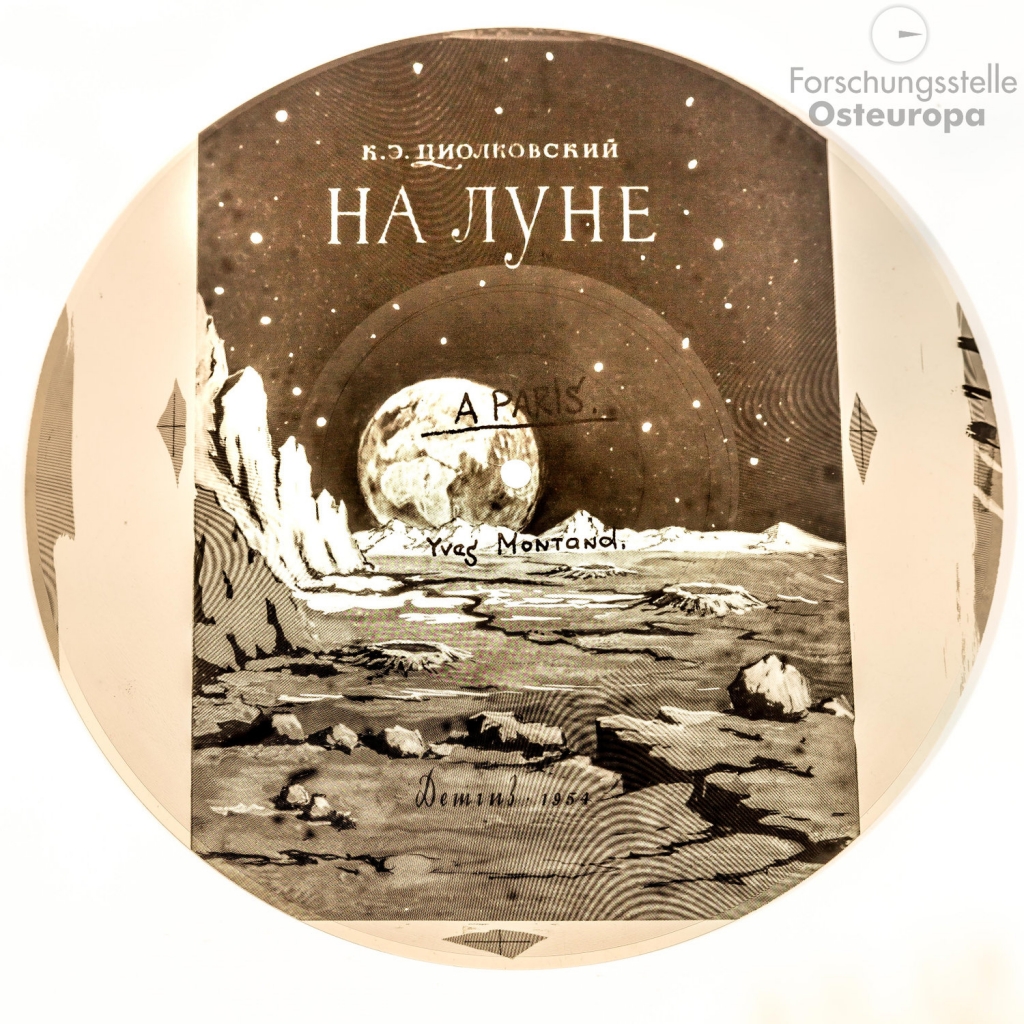Odesa-Tage 2025
Kolloquiumsvortrag
18:15 Uhr, / Zoom
Eka Tchkoidze (Halle) | Medieval History in Georgian Literature and Film (19 th -20th ct.). Some Aspects of Shaping Georgian National Identity
Discussion, 02.12.2025, 18:00, EuropaPunkt
"Occupation, torture, and violations of nuclear safety", with Rebecca Harms (former MEP), Roman Koval (Truth Hounds) and Yana Lysenko (FSO Bremen). Moderated by Eduard Klein (FSO Bremen).
Wissenswertes
Yves Montand and The Bones of Bremen
A guest editorial by Stephen Coates, creator of the X-Ray Audio Project
In the Cold War era of the Soviet Union between about 1946 and 1964, a unique and unusual underground recording culture existed. In a political context where all culture was censored, much music became forbidden.This included Western Jazz and rock ’n’ roll, Russian emigre songs and music in various styles that were considered undesirable. But much of this music was very popular and ingenious bootleggers devised a way to copy and distribute their own discs by using home-made recording machines to make vinyl type records. The medium they used was x-ray film. The X-Ray audio project is an initiative to tell the story of these strange records and the people who made, played and traded them. It is currently the subject of a major exhibition at GARAGE museum in Moscow.
We were very pleased to be contacted recently by the Research Centre for East European Studies with regard to various x-ray records in their archive.The records are part of the personal papers of the Polivanov-familiy and were donated by the philologist Anastasia Alexandrovna Baranovich-Polivanova (born 1932). They have an interesting Samizdat connection and musical history. Anastasia’s husband, the mathematician Michail Konstantinovich Polivanov, was active in samizdat circles and she is the daughter of Marina Kazimirovna Baranovich, a member of the underground Soviet Anthroposophical Movement, who helped to publish early samizdat works by authors such as Antoine de Saint-Exupéry. Study of anthroposophy, a mystical philosophy founded by Rudolf Steiner, was made illegal in the Soviet Union in 1923 and subsequently many Russian practitioners ended their lives in the gulag. The movement remained underground until the more open climate of the 1970s.

Quelle: Archiv der Forschungsstelle Osteuropa, FSO 01-137.
The music on the discs is by French-Italian singer and actor Yves Montand. The first time Anastasia heard Montand’s music was at a "French evening“ (she was studying languages) at the Moscow State University around 1955/56. She was able to obtain an actual original Montand vinyl album but it was stolen in 1957 - such records would be very desirable and valuable. She was unable to find a replacement but a generous and resourceful friend somehow managed to find Montand songs recorded on x-ray and presented them to her as a consolatory gift.


Foto: Fabian Winkler Fotografie. Quelle: Archiv der Forschungsstelle Osteuropa, FSO 01-137.
As such, these x-ray discs may be examples of more conventional 'bootlegs' - that is, privately made copies of records that were, or had been, officially available but were expensive or difficult to find. The rather beautiful unusual picture disc above containing the song 'A Paris' is also from the Research Centre's archive and is an interesting one. It is obviously not an x-ray but is an example of one of the other types of film used to create privately-made bootlegs - in this case, the music is cut onto the printers' photographic film used in the making of the cover of a book. We have come across several records made using this kind of film - which, like x-rays, must have been suitable for holding the grooves of music written using a recording lathe.
Stephen Coates
Länder-Analysen
» Länder-Analysen
» Eastern Europe - Analytical Digests
Discuss Data
Archiving, sharing and discussing research data on Eastern Europe, South Caucasus and Central AsiaOnline-Dossiers zu
» Erdgashandel
» Hier spricht das Archiv
» Russian street art against war
» Dissens in der UdSSR
» Duma-Debatten
» 20 Jahre Putin
» Protest in Russland
» Annexion der Krim
» sowjetischem Truppenabzug aus der DDR
» Mauerfall 1989

